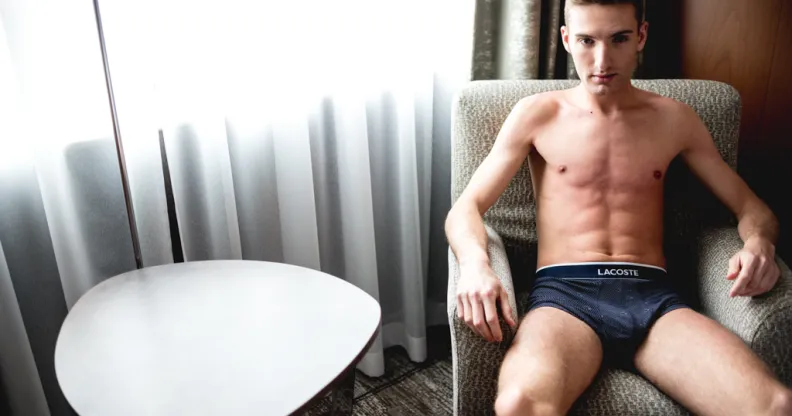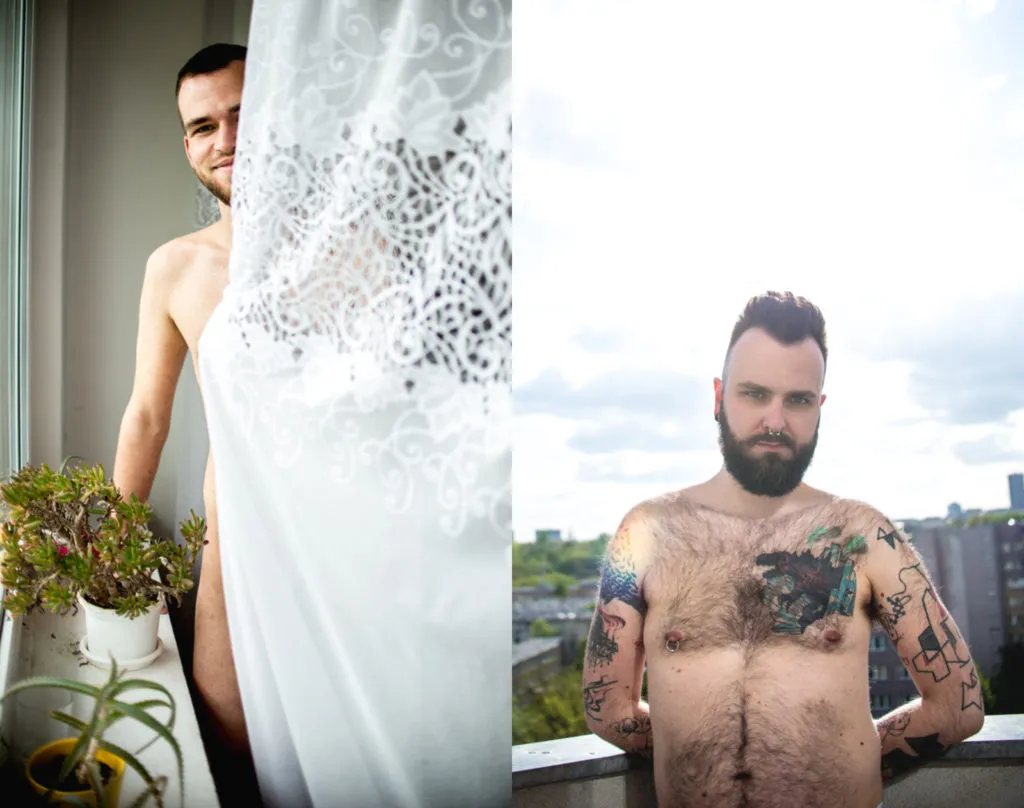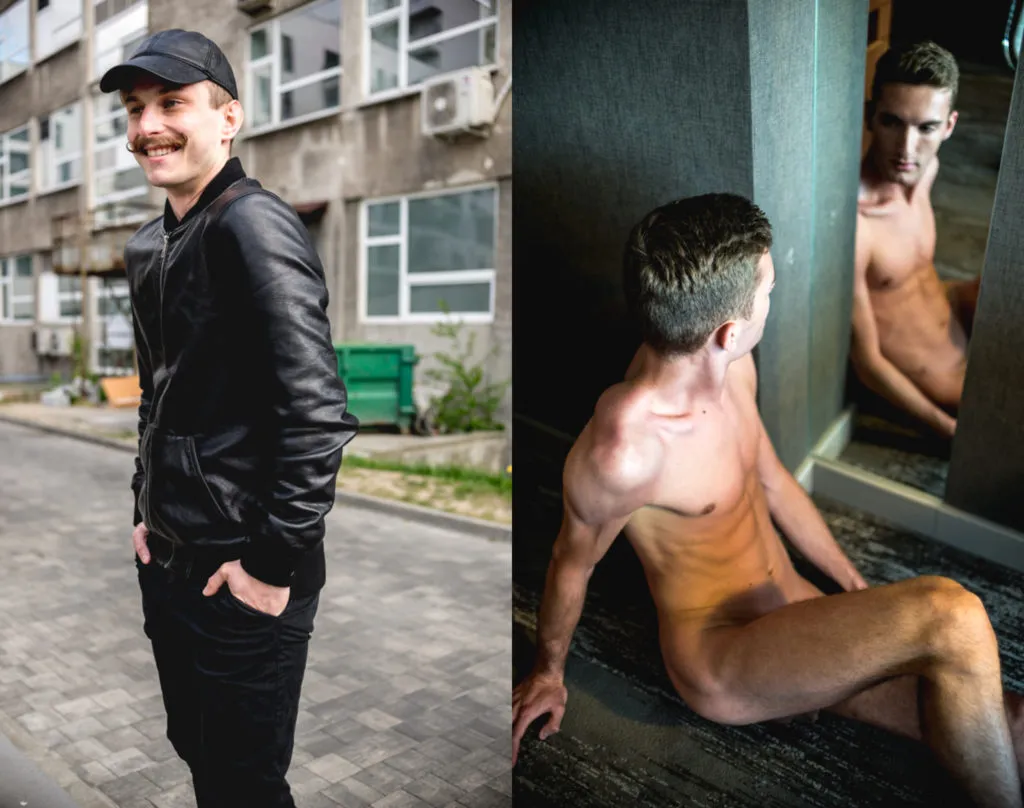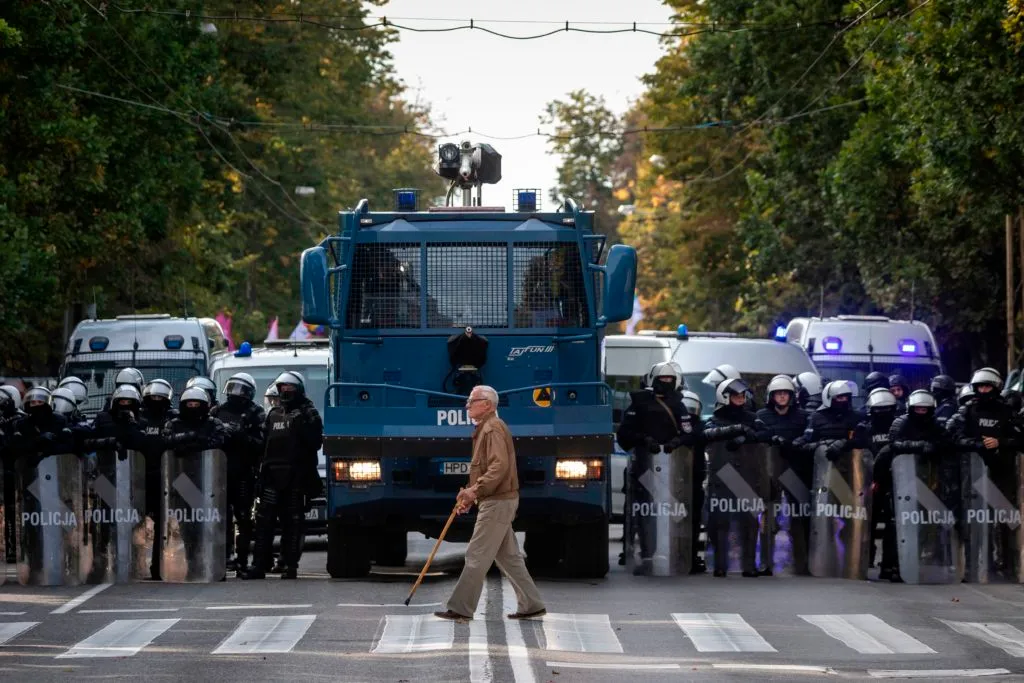Queer men in Poland strip off to celebrate their sexuality and defy rising homophobia gripping the country

Violence against queer folk in Poland has rocketed in recent years, and a photography project in Elska magazine is a welcomed antidote to the arid hate. (Liam Campbell)
As anti-LGBT brutality bubbles in Poland, a group of queer men have stripped in open defiance of their country’s government who have dubbed their sexuality a “threat”.
For voters and politicians, LGBT+ rights have emerged as a venerable battleground. Towns and villages dotted across Poland’s verdant countryside have declared themselves ‘LGBT-free zones’ as anti-LGBT riots swamped the country last year.
This spectre of homophobia was provoked by lawmakers and religious leaders in the run up to the federal election, in which voters swept the conservative Law and Justice Party into power.
While the mandate to rule has been a blow to the community, 14 queer men have stripped for Elska, a gay indie publication in Poland, to provide a positive possibility model in response of the arid hatred spewed.
‘I hope that as many Poles as possible will to see this work, whether they are proud or disgusted at the results.’
In apartment kitchens sprouting with houseplants, outside cold, concrete buildings and wrapped teasingly in lace curtains, the men posed for photographer and editor of Elska, Liam Campbell.

(Liam Campbell)
“I’ve been saddened by the headlines coming from Poland,” Cambell said in a press release.
“From anti-gay protest marches, to the national distribution of anti-LGBTQ stickers, to even the arrest of local artists who have dared to use the rainbow in their work, and that’s why I knew we had to come to Poland now,”
“I hope that as many Poles as possible will to see this work, whether they are proud or disgusted at the results.
“I certainly am incredibly proud of the men I met in Warsaw who were willing to take part in our project and so publicly and intimately declare themselves out and unafraid.”

(Liam Campbell)

(Liam Campbell)
The ‘Warsaw issue’, the magazine’s 27th, dives deep into the duality of queer men’s lives, looking intimately at the people they are clothed and pummelling the pavements of Poland as well as the people they are in the warm privacy of their homes.
Together, they form a vivid kaleidoscope of what it means to be queer within the “new era of Polish homophobia,” the release added.
What exactly is this ‘new era of Polish homophobia’?
In the last four years since the Law and Justice, or PiS, party was elected to power in 2015, activists and critics have argued that their lawmakers have fermented hate.
Multiple Prides in Poland this year – with many of then being the town’s first ever – were descended upon by hundreds of protesters.

An elderly man walks past riot police officers and a water canon protecting participants taking part in the Gay Pride parade in Lublin, eastern Poland, on September 28, 2019. (WOJTEK RADWANSKI/AFP/Getty Images)
Moreover, for a time, a government-aligned newspaper Gazeta Polska distributed anti-LGBT stickers before the courts ruled it was illegal.
And critics argue that leader Jaroslaw Kaczyński’s re-election campaign has only added fuel to the fire.
Poland leader: LGBT+ people are ‘real threat to Polish state’.
By placing LGBT+ rights in the centre of public debates and depicting them as a dangerous Western idea that undermines traditional Catholic values, the leader described his party as fighting in an “ideological war”.
Meanwhile, the southern city of Lublin recently gave awards to local officials who have opposed: “LGBT ideology, which goes against the family, the nation and the Polish state”, according to local media.
While Polish policy-makers have been sluggish to enshrine LGBT+ people with rights, activists have pressed them to enact change.
Tireless campaigners have proved successful in the past by pushing parliament to introduce positive measures, such as enabling gay men to donate blood.
However, marriage equality, legal protections in the area of gender identity and adoption remain far off in the distance.

